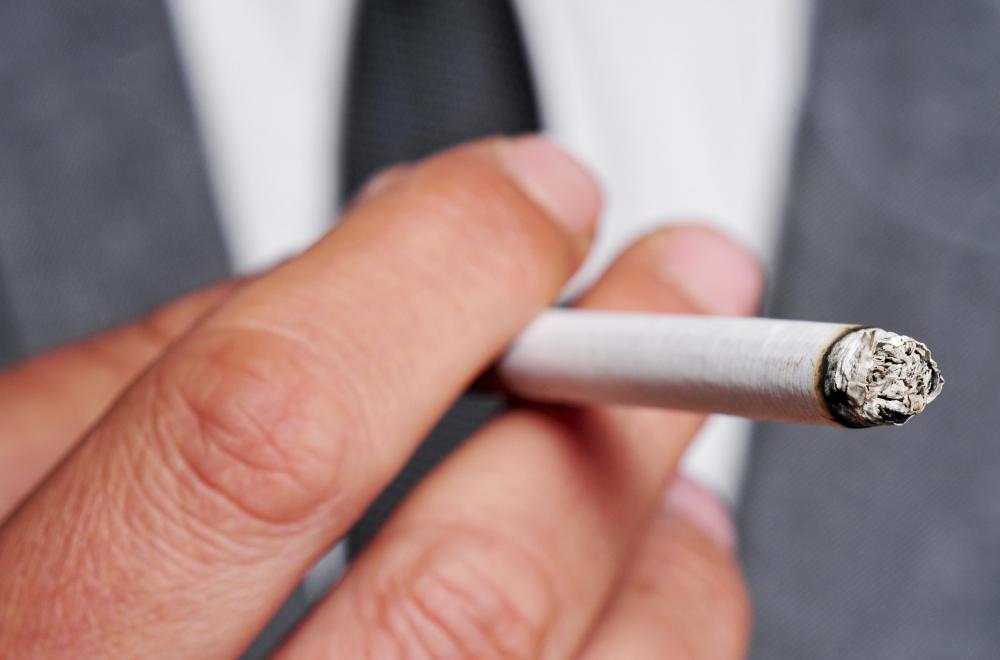At TheHealthBoard, we're committed to delivering accurate, trustworthy information. Our expert-authored content is rigorously fact-checked and sourced from credible authorities. Discover how we uphold the highest standards in providing you with reliable knowledge.
What are the Different Types of Vocal Cord Damage?
There are several different types of vocal cord damage that can be caused by many different factors from illness to vocal cord injury. Injury can be caused in many ways, including medical procedures. Vocal cord abuse is a big contributor to damage, but the good news is that it is frequently avoidable.
One of the diseases associated with vocal cord damage, which may prove surprising to some, is gastroesophageal reflux disease, or GERD. This disease may also be referred to as gastric or acid reflux disease, and occurs when stomach acid backs up into the esophagus. Many people think they are experiencing simple heartburn, but if chronic, acid reflux can damage the vocal cords, including causing ulcers.

Different types of infection can also cause vocal cord damage. A vocal polyp can create problems as well. A polyp is a small, non-cancerous growth and can be the result of thyroid disease. In other cases, it may be caused or aggravated by chronic smoking.
Damage the vocal cords can be caused by various injuries including surgical injuries and intubations. A tube inserted in the throat can create inflammation and bruising or result in nerve damage or vocal cord paralysis. Vocal cord dislocation may also occur. The latter can cause more serious problems than simple laryngitis, and may result in difficulty swallowing or breathing.

Vocal cord abuse can be serious, but it is fortunately one of the most preventable sources of vocal cord damage. Abuse, if continued or untreated, may cause a complete change in the voice, temporary loss of voice, or cause permanent damage. Abusing the vocal cords typically means using the voice too much or in an inappropriate way, such as screaming.

Overuse or misuse can also be a contributor to such problems. This can occur when a person must spend time rehearsing for a singing, speaking, or acting performance. Those who must use high or low pitch or who do impressions or sound effects may find their vocal cords becoming irritated. The effects of oveuse or minor misuse tend to be milder and temporary, although overuse can turn into abuse.

Treatment for vocal cord damage can include simple things like changing or breaking bad habits or performing exercises, but will sometimes require surgery. Anyone who suspects that he or she is suffering from vocal cord problems should consult with a health care provider. Waiting may cause the condition to become more serious.
AS FEATURED ON:
AS FEATURED ON:














Discussion Comments
I have had surgery on both sides of my vocal cords. The surgery was in 2002. I don't have any frequent problems, but sometimes I can't sing continuously, can't speak very loud and have a little hoarseness in my speech. Would speech therapy exercise help?
I knew a man who was undergoing surgery for something minor and something went wrong, and he ended up with a paralyzed vocal cord.
What even made this worse was that he sang in a small group for some part time income and was not able to sing the same again.
He can still sing and carry a tune, but it doesn't sound the same. Even when he talks, he sounds raspy and it sounds like it takes a lot of effort for him to talk.
In a situation like this, there was nothing he did to cause this problem. He was a fairly young man when this happened, and has had to adjust to this for many years.
I sang in a hardcore band all through high school and into college. I had never had any formal vocal training and had no idea how to scream without absolutely ruining my vocal chords. We played a lot in those years and I was on stage singing at least a few nights a week.
By the end my voice had gotten much weaker and I hurt for a while after the a show. It was also not uncommon for me to loose my voice all together. I ended up having to quit music because I just couldn't handle the damage to my vocal chords any more.
I have tried to get back into it a few times but I think something is broken that can't be fixed. My voice is just not what it used to be. Its a huge bummer.
@manykitties2 - My uncle has vocal cord cancer and it can be difficult to discern what symptoms really point to cancer. I think your mother should see a doctor about her vocal cord issues so that she can get a proper diagnosis.
Some of the things that can point to serious issues are a cough that just won't go away, coughing up blood, a feeling that something is caught in your throat and being able to feel a lump on the throat. Once again, your doctor will know for sure if your mom needs anything like cancer treatment, or vocal cord surgery.
What are some of the signs of vocal cord problems and can they be related to throat cancer symptoms?
My mother has been a heavy smoker for most of her life and she has been complaining a lot about throat pain and finds her voice very raspy.
I am worried that she might have vocal cord damage, or the beginnings of something more serious like throat cancer.
I have tried to help my mom quit smoking for many years but no matter what happens it seems like she always starts up again. We've used the patch, the chewing gum, the inhaler, and even quitting cold turkey and nothing works. I'm afraid she might pay the price for not quitting now.
Post your comments